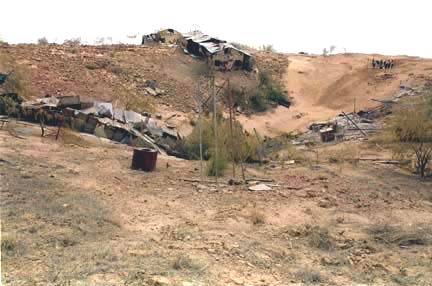SOURCE: AFI


Dr. Rajagopala Chidambaram, a senior scientist during India’s first nuclear test in 1974 and chairman of the Atomic Energy Commission during the tests in 1998, has been a pivotal figure in shaping India’s nuclear landscape. His insights into the global nuclear dynamics highlight India’s unique position in the world of nuclear science and technology.
In a recent discussion, Dr. Chidambaram illustrated the interconnected nature of global nuclear relationships. He described the intricate web of nuclear collaborations and espionage among leading nuclear powers. For instance, since the Manhattan Project, the UK has been closely involved with the US in nuclear activities, forming an “American circle” that includes a smaller “UK circle.” Similarly, there are overlapping nuclear relationships between Russia and China, China and Pakistan, the US and France, and France with Israel and several other countries.
However, in this intricate diagram of intersecting circles, Dr. Chidambaram pointed out that India stands alone. Unlike other nations that have engaged in nuclear espionage or relied heavily on technological transfers, India has developed its nuclear capabilities independently.
Dr. Chidambaram emphasized that India did not need to spy on other countries or steal their nuclear secrets. Instead, India possessed the requisite knowledge and expertise to advance its nuclear technology. This independent approach has earned India a unique place in the global nuclear order, highlighting its dedication to ethical scientific practices and self-sufficiency.
Dr. Chidambaram’s contributions to India’s nuclear program are monumental. He played a critical role in the Pokhran-I test in 1974, codenamed “Smiling Buddha,” which marked India’s entry into the nuclear club. As chairman of the Atomic Energy Commission, he was instrumental in the successful execution of the Pokhran-II tests in 1998, a series of five nuclear explosions that demonstrated India’s advanced nuclear capabilities.
Under his leadership, India’s nuclear program not only achieved significant milestones but also adhered to strict safety and ethical standards. Dr. Chidambaram’s vision and expertise have been crucial in ensuring that India’s nuclear journey is marked by indigenous development and innovation.
Looking ahead, Dr. Chidambaram remains optimistic about India’s nuclear future. He advocates for continued investment in nuclear research and development, emphasizing the potential of nuclear energy to address India’s growing energy needs. He also stresses the importance of international cooperation in areas such as nuclear safety and non-proliferation, while maintaining India’s core principle of self-reliance.